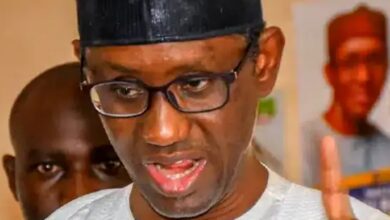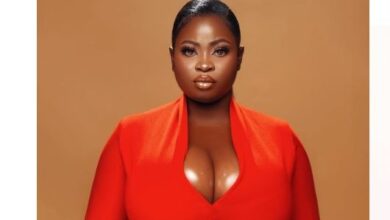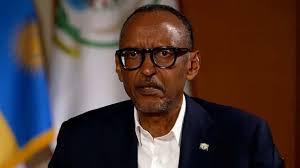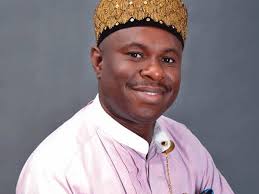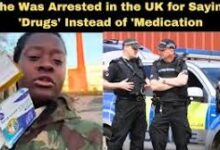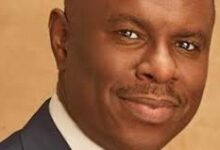States Should Stop Pushing for New Seaports to Avoid Wasting Resources – Amiwero
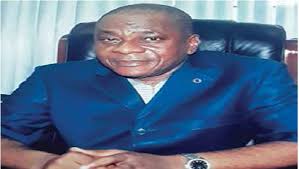
Lucky Amiwero, President of the National Council of Managing Directors of Licensed Customs Agents(NCMDLCA) in this interview speaks on the non viability of emerging seaports being promoted by some states.
He described Lagos as strategically positioned for ports unlike other states seeking to have ports without commensurate cargoes and industries to service them. Amiwero spoke to Ismail Aniemu
2024 has come to an end. We are in a new year, and as one who is an expert in the maritime sector, how would you view the workings of government policies and the impact of the economy, looking at it from the maritime perspective?
Well, it has not been easy. The policies affected the exchange rates and the flow of trade.The floating exchange rate affected a lot of people, because when you look at $500, it’s almost close to N1m. And when the quantum of money used to bring import is considered , it reduces import.For now, Nigeria is an import-dominated economy. We have not created an enabling environment that will allow export to thrive.
There should be a balance in export and import. The exchange rates which affected the flow had a lot of impact on the manufacturing sector.
Diesel and Fuel price were increased.The consumption in terms of energy, was increased. Some people had to ration their movement.Some of them don’t go to some areas for their various businesses because the cost of doing business is quite high as it has tripled .It’s not stable, consistent, predictable, and transparent. So people are not really involved in import as such.
In the port industry, the flow in terms of throughput reduced drastically. Many people started moving out to see how they can get things done. It was quite difficult in 2024.
We don’t know what is being done with the Blue Economy. We prefer it to be called Ministry of Transport.Blue economy cannot be run by a ministry.
It must be run by a national government because one of the factors of the Blue economy is the fishery aspect. If it’s properly developed, it will create employment. Blue economy is what you see in the ocean, the sea, the water belt, and the rest. Fishery plays an important role on the economy.
In the Blue economy, fossil fuel has a lot to do with deep sea mining. There are a lot of these other materials and components for manufacturing fuel and others that are inside the deep sea.
The water, renewable energy, and some others are not under the Blue economy and therefore,the Blue economy should be redesigned and reclassified properly so that it will be harnessed and be useful for the betterment of the nation.
In 2024, we didn’t see much from the Blue economy.We don’t know what is going to happen now. It has been quite difficult for agents, importers, and the officers working in the port too because they have to do extra work to be able to attain their goals.
We expect better things in 2025. I can’t really lay my fingers on anything that has happened, which is significant in terms of growth in the economy in 2024. Because looking at the statistics, the inflation rate is high, food and every other thing are quite expensive.
Food is not accessible and most of the people are moving out of their shelter. They are relocating out of the country. Many are looking for a way to leave the country completely. We believe that things can be better because people are really going through difficult times.
As a maritime country, what are the short, medium, and long-term strategies you think government can apply to boost vessel ownership by Nigerians?
The short term strategies are all there in the NIMASA Act, and the Act is very clear. But, there is a problem if you have vessel ownership and you don’t have cargo to clear.The law allows NIMASA and the local content organization, to work and cooperate, in order to bring out policies that will generate employment, and bring wealth from the cargo preference aspect of the law in NIMASA.
The NIMASA Act allows 70% of technical listing, 70% of oil and gas but all those things are not working. They are just laws on paper.
There is need for them to implement those things so that the indigenous operators can work out the modalities to be able to trigger the economy so that it can generate wealth and employment. Vessels can be chartered.They can be chartered for 10, 30, 40 years and that is bare boat.That means they get the crew, the vessel, they take care of it, flag it, and use it for a number of times, and get their money. As they do that, they can now be able to get their own vessels. But, I don’t think Nigeria is working towards that .
I think NIMASA is the agency that should drive that process by the provisions of their Act. They have to enable ship expansion. The Cargo Preference Act, whereby many of the cargoes being shipped technically, out of or into the country, will be handled by indigenous operators.
In Section 16 and 17, where we have maritime fund, that fund is for indigenous operators and over the years, has not been used.
Those funds should be audited so that we can look at what is in that fund. NIMASA has used that fund on its own. It is not for them.It is for the indigenous operators. If you look at Section 17, subsection 4 and 5, you will find that it is for indigenous operators and that fund has not been utilized.The fund should be utilized.
The Vessel Financing fund is still a political fund.Those are are the things that make America and other nations great. In Nigeria, it is quite political because it looks like all those things, are just law on paper.It is just a law which cannot be implemented.
The CVFF money is not government money, it is money for indigenous operators.Indigenous operators are supposed to access this money and use it to take care of fleet expansion, employment, revenue generation, and to put things right in the economy.The nation cannot grow when these things are not done. NIMASA came into existence in 2007.From 2007 to date, what have they done? Nothing, yet we expect something good to come out from there.
When a specific law is made for indigenous operators, in the two acts, for the cargo Vessel Financing Fund and the Maritime Fund, it is not for government, it is for the Operators.It is not NIMASA’s money.
It is money set aside to build capacity for indigenous operators. But it’s not used.People should go to court and force government to do it.The thing is clearly specified there. If that is not done ,there’s no way the country can move. That is when we are talking about the Cabotage Act that was codified in America.
That is why you see that the American economy is moving and is breathing. There’s life there. Because they sustain those things.We don’t sustain it. Since 2007 till now, the Maritime Fund has been there. They have been collecting money.In America, there was a defaulting process for almost 17 of them.They had to rejig the whole thing ,redefine it and bring it back.
The subsidies and all the rest were given back to people. After some time, all the subsidies are no more there use people started to become owners of their vessels.
There’s the construction subsidy and so many subsidies in America in those days. All those subsidies, after they stabilized, were knocked off .I put up a write-up to the government on the issue of subsidy. A maritime nation cannot be run without this assistance. Shipbuilding, ship acquisition, and vessel financing is capital intensive.All over the country, shipping is a mafia business. We are not talking of using bigger ships, we are talking about coastal ships like oil vessels and all these small, small vessels. Even coastal ships that go to Ghana where you can move from Ghana to Nigeria and vice versa are our ships.
There must be coastal lines and this is what is happening in other climes. Our system is just docile.We are just running an economy that is collecting and is not disbursing. We don’t disburse for people to really move. And if you disburse, you have to tie it to the way Americans have done theirs.That is the truth.
Let’s look at emerging ports. There is a plan to have a fourth port in Lagos and there are ports being promoted by some states that are yet to come. Like the Bakasi port in Cross River, Ibaka port in Akwa Ibom, Agge port in Bayelsa.There is another one in Edo State. Do you think we have cargo to export in these ports ?
They are political ports. They are not ports.Ports are not designed that way because we have what is called destination of cargo. When designing a port, feasibility study must be done to know what cargo that port can derive.In Nigeria, 70% of cargo is concentrated in Lagos. Why?
It’s because most of the manufacturing companies are in Lagos and the market is in Lagos.Many other things are in Lagos. Most of those states don’t have any companies. They don’t have destination of cargo.We are not building a port for the sake of it or because there’s a river or because Lagos is flourishing, No, it must be considered.
They should not just copy Lagos because Lagos has what they call the advantage of destination of cargo. That cargo is going to Lagos because of the peculiar nature of Lagos.Lagos is dotted around industries. It’s a market that controls almost 70% of throughput.
The throughput that comes into the country, comes into Lagos. You will still find out that many people are still coming to Lagos and ship to the east and north because Lagos is the center. Abuja has nothing and there’s no industry there.
What attracts a port? It is not the government that attracts the port. It’s the importer that ships his goods to the port. How many companies are in Ibaka or Bakassi or Edo and Bayelsa?
Are you saying that if they construct this port, it will end up being a waste?
It’s a waste.It is a political port.An assessment should be done first. What is that port created for ? How many ports are in Ghana? Look at Ghana throughput and Nigeria throughput. It’s not about the ports you have.It’s a waste if that port is just built.It will become like Sapele port, Warri port and Burutu port because all those ports cannot attract cargo. There are no companies there.Ther are no importers there. It is not the port that attracts the cargo, it is the importers who send their cargo to Tincan, Apapa, Port Harcourt, and to other areas. Those goods are not diverted.
There are people who don’t understand the running of ports, they should go and look at American ports, Ghana ports and other ports.
They should drop the idea.They don’t have cargoes to actually service those ports. Those ports are political ports. They don’t have cargoes to service.Lagos is a port city. But because it is not properly harnessed ,structured and well coordinated, there is a fault. It is a kind of hindrance considering the access to the port. All these things are done by concessions that was not properly done and was misplaced.
If it was properly done, we ought to have holding bay and trailer parks. We started having them later when we have actually destroyed the flow of cargo.
So bringing back those cargo is not going to be easy. Lagos, has what is called destination of cargo. A port should not just be created because Lagos is flourishing.
I remember sometime in 2001.The minister called me and said he wanted to divert cargo and I said he couldn’t do that. Cargo should not be be diverted because if you divert cargo, you have to pay for the cost. People don’t just sit down and say they are building a port, the port is not owned by the government. It is owned by the importers.
So, in the alternative when you say the ports are political ports, what options are you suggesting for state government that are coastal states what option will you recommend for them in place of building capital-intensive ports that will end up not adding value and becoming a waste of money, how best do you think we can harness their maritime potentials for economic growth?
You see the coastal states have a beautiful coastline, and that coastline can be harnessed for fisheries, or other things that are better. It’s not all for cargo and their port can still be used for barges to bring cargo to approved jetties in their environment. But we can’t achieve anything by building massive ports.
If you go to Sapele now it’s a naval base if you go to Warri, it’s just an idle port. Burutu, Calabar ports are all political ports. When people get into politics they try to build ports where ever they like and that is what is happening. If you recall Buhari was in power they had plans of constructing a rail from Lagos to Niger
They built that lane and It costs so much money and they built a dry port in Funtua in Kastina. It’s not a dry port because there’s no legislation for that and you must bring an expert to do that for them, because there’s what we call liability. Who carries the liability of transportation? And you must have a through bill of lading to go to that port so it’s not just to create all these bounded terminals that are being called dry ports
Otherwise, you create them and they become edifices that would be wasting away. If you look at the inland ports, when they were creating it in Shippers Council I told them it can not work. Most people have wasted their money and they are still there. You cannot create those things without rails, and when you cannot manage the rail that means when you are asking them to bring it to Funtua port, you are using custom law to bring it to the port.
The transire you are using is customs document, customs will tell you look you must pay your duty in Lagos or any other place. But when you have a port that is designed by law, and you have through bill of lading that takes it down there and you must have somebody that will take care of the liability of transportation so that if anything happens along the road, that person will be held accountable for it . So that it can be listed as a port of destination even if it’s a dry port.
Look at all the old ICDs It’s a waste. It’s not just to give the picture the question is how can that place be triggered and reactivated for martime activities?
I was the chairman of the committee including Shippers Council that went to ICD in Kano and Kaduna and we made some recommendations. That is what really happened so you don’t just call them dry ports because there’s no dry port facility in Nigeria since there’s no legislation for that
What we have are navigable ports, which is water ports. If you look at the law that’s the Port Act it’s navigable and it is still under customs like the bonded terminal. Before you can call it a dry port, it must be designed and have the characteristics of a dry port.
Lastly, what are the quick wins? The best strategies that you think government can adopt to use the maritime industry to better the Nigerian economy in 2025?
Well, the problem is to reactivate and investigate all the funds. The vessel financing fund and the maritime fund should be reactivated and allocated to Nigerians because it’s not government money. It is for indigenous owners and that is why that deal was created. You cannot be running a system that is not progressive, there is no provision that says a minister must disburse. That fund was allocated to trigger and build a functional and indigenous operation within the maritime sector.
We were part of the team that actually triggered that law. Look at 2003 till now, the cabotage vessel financing fund and maritime fund has not been disbursed but you cannot do such a thing in a foreign country. For 21 years they’ve been collecting the money because the money is there, what they do is to organise seminars about the funds. The former DG of NIMASA Bashir Jamoh said they would disburse it before he leaves office but it was never actualised before he left NIMASA. Where was the fund within that time? These are the things we are talking about. We cannot have a nation where we don’t institute, comply with the law. We also don’t trigger the law to bring about changes in the maritime sector.
Look at the concession, it was not designed properly. What are the functions of the Nigerian Ports Authority and Terminal Operators? They are not defined in the Port Act so we are running a confused system .
There is nowhere in the world where the Port Act are not well defined but in Nigeria, the Nigerian Shippers Council and NPA are not on the same page and nothing can be achieved that way . Ghana and Cote d’Ivoire are reducing their cost of doing business but in Nigeria we are being politicised and by the end of the day there are no jobs for our children. Our freight components are moving out of the country.
Freight component generates employment but right now it is being moved to places like Togo, Ghana, and Cote d’Ivoire. When you take a look at Nigeria you will see it’s becoming empty. So we must have a rethink and think out of the box to change the situation of the county

